Cosmology
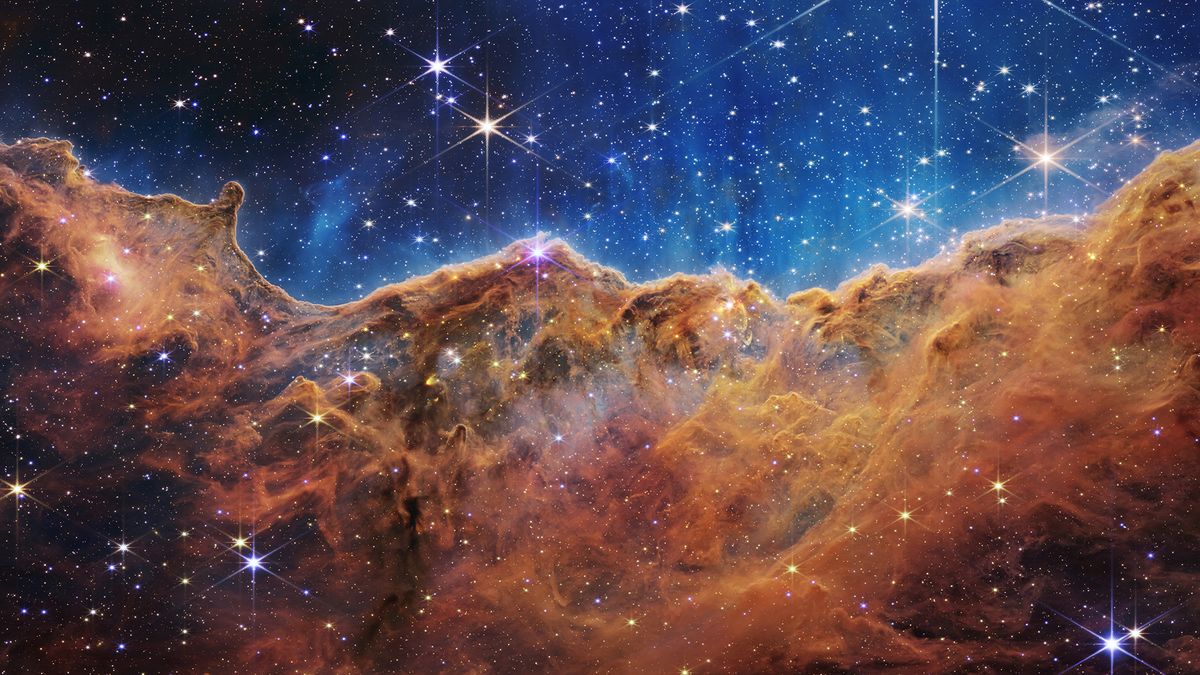
Cosmology is a branch of physics that grapples with the big questions on the nature of our universe, including where it came from and what will happen to it next. At Live Science, we make this complex and sometimes mind-bending science accessible, explaining everything from the speed of light to the multiverse theory, and describing all of the wild theories about the universe.
Our expert writers and editors also break down new developments in the field, whether it's how "Dark sirens" could solve one of the greatest mysteries in cosmology or why the launch of the Euclid space telescope is groundbreaking, with the latest cosmology news, features and articles.
Discover more about cosmology
—5 fascinating facts about the Big Bang, the theory that defines the history of the universe
—The James Webb telescope has broken cosmology. Can it be fixed?
Latest about Cosmology
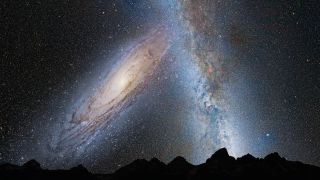
Every major galaxy is speeding away from us, except one — and we finally know why
By Ivan Farkas published
A vast, flat sheet of dark matter may solve the long-standing mystery of why our neighboring galaxy Andromeda is speeding toward us while our other neighbors are moving away from us.
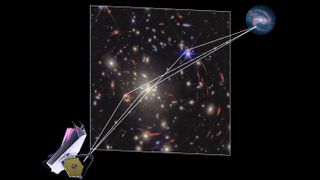
Astronomers spot 'time-warped' supernovas whose light both has and hasn't reached Earth
By Ivan Farkas published
Will two rare supernovas finally tell us how fast the universe is expanding? Perhaps, but we'll have to wait for it for them to 'reappear'.
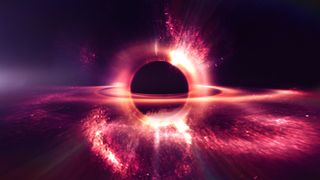
James Webb telescope saw black holes emerging from 'cocoons' near the dawn of time
By Skyler Ware published
The gaseous cocoons surrounding "little red dots" hint at their true nature, a new James Webb telescope study hints.
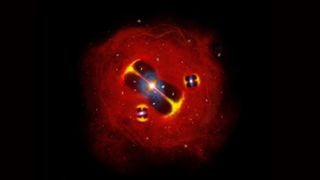
'How can all of this be happening?': Scientists spot massive group of ancient galaxies so hot they shouldn't exist
By Skyler Ware published
An inexplicably hot, fast-growing cluster of galaxies in the early universe has scientists questioning theories of galactic evolution.
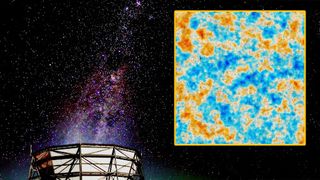
30 models of the universe proved wrong by final data from groundbreaking telescope
By Paul Sutter published
The Atacama Cosmology Telescope (ACT) in Chile has released its final batch of data after 15 years — and it proves that the Hubble tension, a rift in our understanding of the universe, is very real.

James Webb telescope may have found the first stars in the universe, new study claims
By Elizabeth Howell published
The James Webb Space Telescope may have discovered Population III stars, the universe's first generation of stars. They may tell us more about how galaxies form.
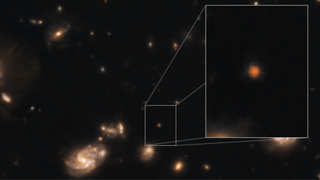
'Puzzling' object discovered by James Webb telescope may be the earliest known galaxy in the universe
By Sophie Berdugo published
While scouring images from the James Webb Space Telescope, astronomers spotted Capotauro, "one of the most puzzling discoveries" to date.
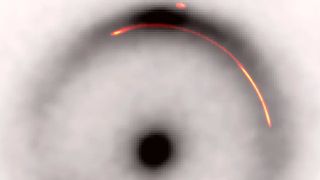
Record-breaking 'dark object' found hiding within a warped 'Einstein ring' 10 billion light-years away
By Harry Baker published
Researchers have found a suspected clump of dark matter lurking within the luminous halo of a well-known "Einstein ring." The mysterious object, the smallest of its kind ever seen, could help shed light on the universe's missing matter.
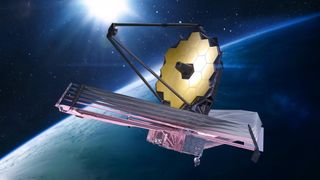
James Webb telescope could have spotted controversial 'dark stars' in the far universe
By Sophie Berdugo published
Using observations from the James Webb Space Telescope, astrophysicists have spotted what they say is compelling evidence of a new type of cosmic object called a 'dark star.'
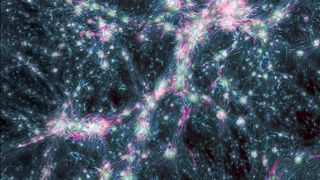
The universe's first magnetic fields were 'comparable' to the human brain — and still linger within the 'cosmic web'
By Harry Baker published
New computer simulations suggest the first magnetic fields that emerged after the Big Bang were much weaker than expected — containing the equivalent magnetic energy of a human brain.
Get the world’s most fascinating discoveries delivered straight to your inbox.
 Live Science Plus
Live Science Plus










